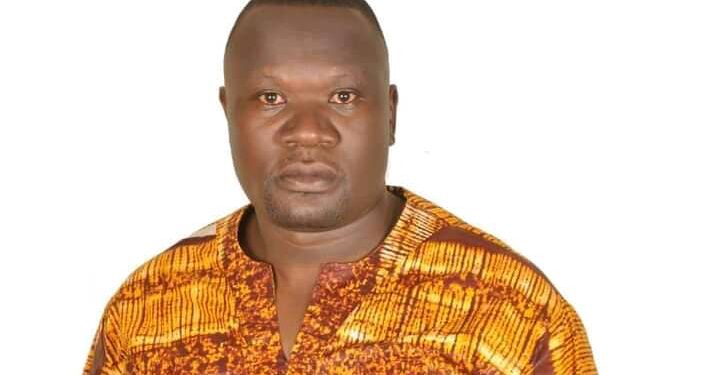A true test of democracy is not just in how it wins but in how it handles defeat. The profound truth in the proverb rings especially true in the wake of the recent Kawempe North by-election. Despite the outcome, the election served as a crucial reflection of Uganda’s growing democratic maturity.
For the National Resistance Movement (NRM), the election results were not what they had hoped for, yet the party’s response was one rooted in respect for the democratic process and the rule of law. This highlights the important strides Uganda is making in solidifying its democratic institutions and processes.
Even in the face of a political loss, the NRM exhibited commendable restraint and commitment to democratic principles, choosing to challenge the results through legal means instead of resorting to electoral manipulation. This shows a party committed not just to winning, but to upholding the integrity of Uganda’s electoral system.
Farida Nambi, the NRM candidate, despite being outpaced by Elias Nalukoola Luyimbaazi of the National Unity Platform (NUP), secured over 9,000 votes in a region historically known for its support of the opposition. This strong showing, particularly given the charged political atmosphere and the fear of violence that characterized the election, speaks volumes about the NRM’s enduring influence.
Though Luyimbaazi won with over 17,000 votes, Nambi’s impressive performance underscores that, even in strong opposition strongholds like Kawempe North, the NRM remains a formidable force in Ugandan politics. In a highly polarized environment where many voters feared to cast their ballots due to threats of violence, Nambi’s vote share demonstrates that the NRM has maintained a resilient and significant support base.
Moreover, the NRM’s response to the election results stands as a reminder that democracy is not just about winning but about respecting the process.
Despite losing, the NRM is opting to challenge the results in court, a move that reinforces its belief in Uganda’s legal framework. The decision to go to court instead of taking matters into their own hands is a positive sign of the NRM’s respect for the rule of law, and it speaks to the growing maturity of Uganda’s political system.
This move also highlights a shift in political culture, away from violence and toward the pursuit of justice through lawful means. In the proverb, “A wise man never gets too discouraged by defeat,” the NRM’s approach, other than the usual practice by the opposition, exemplifies a growing trust in the legal institutions that are essential for resolving political disputes.
The role of security forces in the election cannot be ignored either. While the presence of law enforcement was necessary to prevent violence, especially in an environment where tensions ran high, it also sparked controversy. Several journalists covering the election were reportedly subjected to harassment and brutality by security personnel. This casts a shadow over an otherwise orderly election process. The right of journalists to report freely on electoral events without fear of intimidation is critical for a functioning democracy, and such incidents need to be addressed by the government.
Nonetheless, security forces did manage to prevent the kind of election-day violence that has marred past elections. The NUP’s base ( Foot Soldiers), known for aggressive tactics, were kept in check, ensuring that the situation did not spiral into chaos. In that sense, the security agencies played a stabilizing role, even as their treatment of the press raised concerns about freedom of expression.
Despite these challenges, Nambi’s results reflect the NRM’s deep-rooted support in Uganda. The party was able to hold its ground in a region that has long been an opposition stronghold. The NRM’s ability to secure over 9,000 votes, in a climate of intimidation and fear, suggests that with the right strategies and continued engagement with the grassroots, the party still holds significant sway in areas traditionally thought to be lost to the opposition.
The election result in Kawempe North is not just a temporary setback but a reminder that the NRM remains a key player in Ugandan politics, even in the most competitive environments.
Furthermore, the show of unity among NRM leaders during the campaign is a noteworthy aspect. Top party officials, including President Museveni, rallied behind Nambi, sending a clear message of solidarity and strength. While unity should not be the leading focus of this analysis, it is undeniable that the collective effort of the NRM leadership added a layer of cohesion to the campaign, which was vital in galvanizing their supporters.
The party’s ability to rally together, despite challenges, is a model for future elections, underscoring the importance of presenting a united front to the electorate.
The Kawempe North by-election stands as a testament to Uganda’s democratic journey. The NRM, despite facing a defeat, demonstrated a mature approach by seeking redress through the courts and refraining from undermining the democratic process. The election also highlighted the resilience of the NRM’s support base, particularly in opposition-heavy constituencies, and underscored the importance of unity within the party.
While there were incidents of brutality against journalists, which must be addressed, security forces successfully prevented violence, ensuring that the election was not marred by widespread disorder. The lessons learned from this election are invaluable for the NRM as they look toward future campaigns. The path forward is one of growth, adaptation, and a commitment to democracy, a journey that, if followed with patience and wisdom, could yield significant electoral success for the NRM in upcoming elections.
An old African saying goes [Success is not final, failure is not fatal, but it’s the courage to continue that counts]. And for the NRM, this election serves as a stepping stone to stronger political engagement and a brighter democratic future.
The writer is the Deputy RCC for Nakawa Division, Kampala City.
Do you have a story in your community or an opinion to share with us: Email us at editorial@watchdoguganda.com











